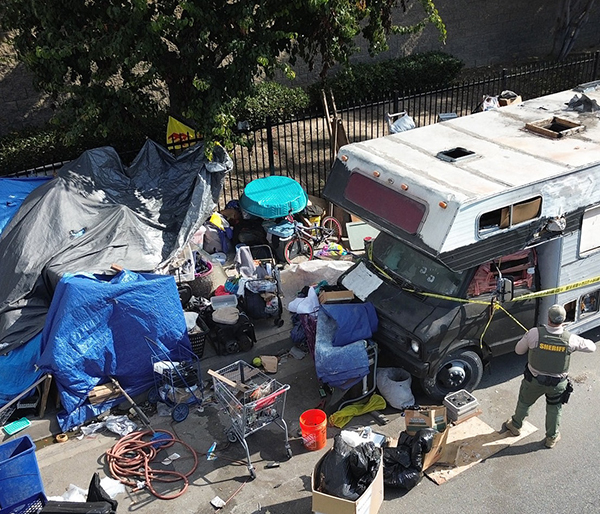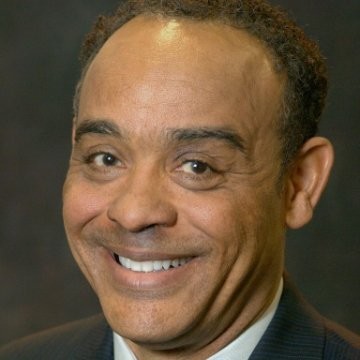THE HUTCHINSON REPORT
By Earl Ofari Hutchinson
Contributing Columnist
Senate Major Leader Chuck Schumer angrily said the brutal treatment of Haitian asylum seekers defies common decency.
A chorus of Democrats chimed in and called the border patrol horseback riding whipping and assaulting of the Haitians much worse.
All demanded that the Biden administration cease and desist the deportation of the asylum seekers.
President Joe Biden is in a tough spot, courtesy of his predecessor Donald Trump. He is following the hardline anti-immigration dictate left over from the Trump administration.
The visual sights of the brutality make it an extreme matter of urgency to scrap the policy and scrap it fast. Even if and almost certainly when Biden relents and loosens the medieval Trump immigration crackdown, it won’t change one hideous fact about Haiti and the treatment of Haitians. It’s a global disgrace.
I’m still haunted by the heartbreaking and pathetic scene I and a group of other American visitors witnessed at the small beach town in Northern Haiti some years ago. We had no sooner arrived at the beach when a contingent of Haitian police and local officials frantically waved away a throng of the town’s residents that had poured onto the beach to hawk food, trinkets, carvings and tattered clothing items, but mostly to beg.
Their torn T-shirts, ragged shorts and emaciated, hollow-eyed looks spoke of more than Haiti’s legendary, world-leading poverty. It spoke of the sheer, utter desperation to get anything from those they regarded as rich foreign tourists.
The tormenting scene that I and thousands of other visitors to Haiti have routinely witnessed during the past decade has become the national emblem of Haiti. In 2010, it took a murderous earthquake, clips of bodies sprawled in the streets, a collapsed palace and shanties, torn streets and the shocked expressions on children’s faces for the U.S. and legions of public agencies and private donors to leap over themselves to promise to send an armada of food, medical supplies, clothing, building materials, construction teams, security forces and cash to Haiti.
And now a decade-plus later, it’s the shocking, infuriating scene of horse-riding border agents whipping the asylum seekers that stir rage and the outcry.
Why does it take these endless tragedies that beset Haiti for this? Haiti’s sorry history of American occupation, brutal dictatorial and military rule, the flood of refugees trying to escape the nation’s destitution; the perennial food crises; the wave of devastating hurricanes that periodically tear through the country; the U.S., Canada, and France meddling in the nation’s internal politics and the grinding poverty is well known.
Haiti’s corrupt, repressive military rulers and government officials get standard blame for the country’s chronic poverty and bankruptcy. There’s much truth to that.
But Haiti is also a relentless victim of crushing and never-ending debt servitude to the International Monetary Fund and foreign banks, vicious labor exploitation and the blind eye to U.S. aid policies that stunt Haiti’s farm and manufacturing growth.
The nation’s debt burden would sink virtually any developing nation. Haiti is compelled to shell out debt incurred by the Papa and Baby Doc Duvalier regimes and their successor military governments in the early 1990s propped up by the U.S. Half of the loans were given to the Duvaliers and the other dictatorships. They squandered the cash on presidential luxuries with barely a cent going to development programs for the poor.
The United Nations has hardly been a benevolent force to aid the country’s development and Democratic rule. The UN for several years shelled out millions to maintain 8,000 peacekeepers there.
Yet, when the hurricanes ravaged the country, the UN force did not dispatch amphibious units, build temporary bridges, or provide trucks or equipment to provide emergency help to Haitians in distress.
The U.S. Agency for International Development has come under intense fire for turning a blind eye to corporations and contractors who ignore basic Haitian labor, human rights, minimum wage and environmental laws, shun service providers and invest only a relative pittance of profit back into Haitian small businesses, manufacturing and food production. This is a particular sore point given Haiti’s near-total reliance on foreign food imports has resulted in famine, near starvation and food riots.
The United Nations Food and Agriculture Organization reports that with proper investment in food production, the country is more than capable of feeding its 8.5 million population. U.S. and Haitian human rights groups have flatly accused the U.S. of aiding and abetting corruption in the country.
They have demanded to know whether U.S. corporations and Haitian officials pocketed and benefited from the billions in U.S. aid spent there. And, if so, who profited and enriched themselves from the billions spent following the U.S.-engineered overthrow of democratically elected President Jean Aristide in 1991.
The appalling footage of the whipping of Haitian asylum seekers brought the wrath of many down on the Biden administration for enforcing Trump’s brutal immigration policy.
The question, though, is why did it take that? And what will it take for the U.S. and other nations to help transform Haiti into the democratic, self-supporting nation it can be?
Earl Ofari Hutchinson is an author and political analyst. His latest book is “Bring Back the Poll Tax!—The GOP War on Voting Rights” (Middle Passage Press). He also is the host of the weekly Hutchinson Report on KPFK 90.7 FM Los Angeles and the Pacifica Network.











